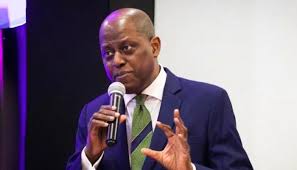By Ayobami Oyalowo

In recent months, the Central Bank of Nigeria (CBN) has come under public scrutiny over its internal restructuring exercise, including the relocation of staff, an early exit programme, and the appointment of 16 new directors. However, Deputy Governor of the CBN in charge of Economic Policy, Mohammed Abdullahi, at the 2-day interactive session on Government-Citizen Engagement by the Sir Ahmadu Bello Memorial Foundation (SABMF) offered a rare behind-the-scenes explanation that sheds light on the rationale behind these decisions.
The Problem Inherited
According to Abdullahi, when the current leadership assumed office, one of the first red flags was a staffing report submitted multiple times by the Bank’s facility manager. The report revealed that between 2019 and 2023, the CBN’s workforce had grown by almost 80% in four years from 5,000 to over 9,000 employees.
This overstaffing created serious infrastructural and operational challenges, particularly at the Bank’s headquarters in Abuja. Office spaces were so congested that conference rooms were converted into workstations, fire exits were blocked, and insurance providers were unwilling to underwrite the risk. “People had no work to do,” Abdullahi stated candidly, describing a scenario where excess staff strained both physical infrastructure and productivity.
Staff Relocation
As part of the solution, the CBN carried out an organisational assessment to realign its staffing with its spatial and functional needs across the country. This included relocating staff to other large CBN offices in Lagos and other regions.
While the relocation drew public criticism, especially from those reluctant to leave Abuja—Abdullahi emphasized that the move was purely operational. “It is not an agenda against anybody,” he said. Rather, it was a redistribution of resources to ensure optimal efficiency, especially considering Lagos’s centrality to Nigeria’s financial system. He also noted that many relocated staff have since expressed satisfaction with the transition.
Even high-profile individuals were not exempt. “The Secretary to the Government of the Federation’s son was moved from Abuja to Lagos. Nobody was spared,” Abdullahi added.
The Early Exit Programme
The early exit scheme was also mischaracterised in public discourse. Abdullahi explained that this programme was not new and had been part of the CBN’s internal HR framework for over two decades. When the new leadership held town halls with staff, it was the junior staff committee that proposed reviving the option to allow those interested in other career paths to voluntarily exit with financial compensation.
Abdullahi shared the story of four young employees who eagerly took the package to start a cooperative business venture. Far from being a purge, the early exit programme was framed as a voluntary opportunity for self-determined career change.
Appointment of 16 New Directors
The appointment of 16 new directors also generated public misconceptions, with some alleging that the positions were handed to outsiders or selected without due process. Abdullahi strongly refuted these claims.
The directors were not appointed externally as erroneously insinuated. Instead, they are long-serving CBN staff promoted based on merit, competence, and a competitive process. The recruitment was handled transparently in partnership with PricewaterhouseCoopers and Harlequin, involving rigorous interviews, examinations, and evaluation.
“These are some of the best directors we have in the Central Bank,” Abdullahi said, adding that they come from diverse backgrounds and regions within Nigeria. Their published profiles demonstrate a broad mix of expertise and institutional knowledge.
The Deputy Governor detailed explanation revealed that the apex bank internal restructuring were all based on clearly defined operational needs and implemented through transparent processes.
While the reforms may have sparked discomfort or controversy, they reflect an effort to restore professionalism, efficiency, and accountability within one of Nigeria’s most critical institutions.
Oyalowo can be reached on X (formerly Twitter) @AyoOyalowo
